What is done out of love always takes place beyond good and evil
– Nietzsche
I’m going to let Nietzsche’s quote sit for a while while I briefly recap the last few episodes of the wonderful Beyond Evil. But while I do, let’s ponder this for a moment – what does ‘beyond’ mean in this quote? Is it between good and evil? Above good and evil? Does it transcend good and evil?
Or does it mean that acts of love are taken without reference to either good or evil. That what is done out of love is done without consideration of good or evil. And if an act of love can be understood only outside of a moral framework of good or evil then what of its consequences? What of them? What of those dreadful things? Are they good or evil? Or something beyond?
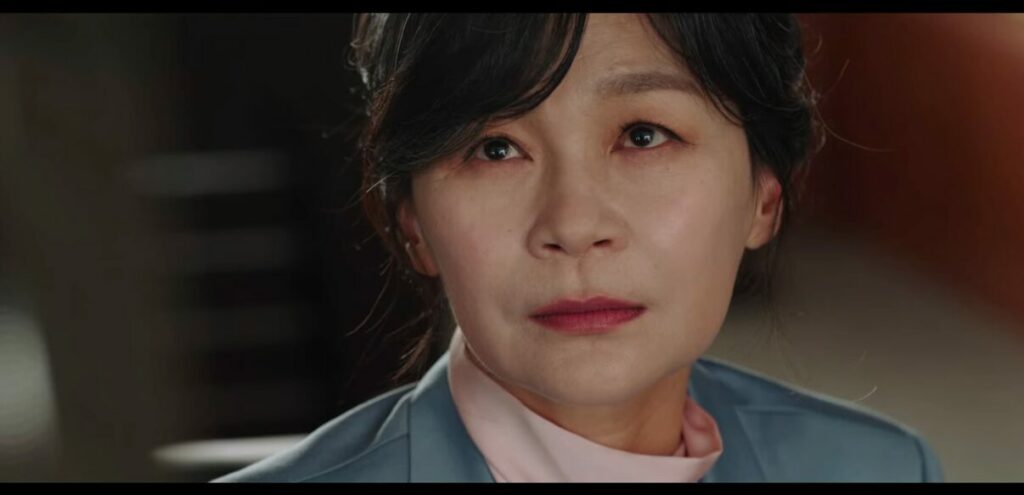
We start 20 years ago when our three antagonists gathered together to celebrate their plans to redevelop Munju City. This scene embodies a nexus of corruption between the law, politics and business: when everyone has a connection to corporations, their decisions are inherently corrupted by those influences. The future Congresswoman Do is celebrating with the wannabe Russian gangster and CEO of Jinlee Constructions, Lee Chang-jin. They’ve acquired the land for the redevelopment through illegal means thanks to Joo-won’s father, Han Ki-hwan. At the time Chief of Munju City Police, he’s turned a blind eye to their activities in exchange for a kickback contract to his in-law’s company.
The future Police Commissioner General of Korea clearly holds the other two in contempt, believing himself to be their superiors. It’s a personality trait his son was desperately trying to emulate when we first met him. However, he gets bullied into having a few drinks and we now know how this evening ends: with Dong-shik’s sister, Lee Yoo-yeon being hit by his car as she runs from the future serial killer Kang Jin-mook.
It’s some time later that a drunk and medicated Park Jung-jae runs over her body lying in the road and panics and calls his mother. She calls Lee Chang-jin who loses the body to Kang Jin-mook who is trying to cover up his own crimes. While Lee Chang-jin has spent the last 20 years blackmailing Congresswoman Do, Police Chief Han Ki-hwan was more than happy to shut the case quickly. It was his own crime he was covering up after all.
While the case underpinning this show might seem a bit convoluted, it’s making an important point about the way in which secrets and lie build up and spill out across the whole community. When we try to cover up our own secrets, our own wrongdoings and our own crimes we unwittingly provide cover for worse sins. Park Jung-jae’s mother thought only of protecting her own son from what she saw as a childhood mistake. But in doing so she provided cover for Han Ki-hwan’s crimes and for the nascent overtures of a misogynistic serial killer. And the son she wanted to protect was destroyed anyway.
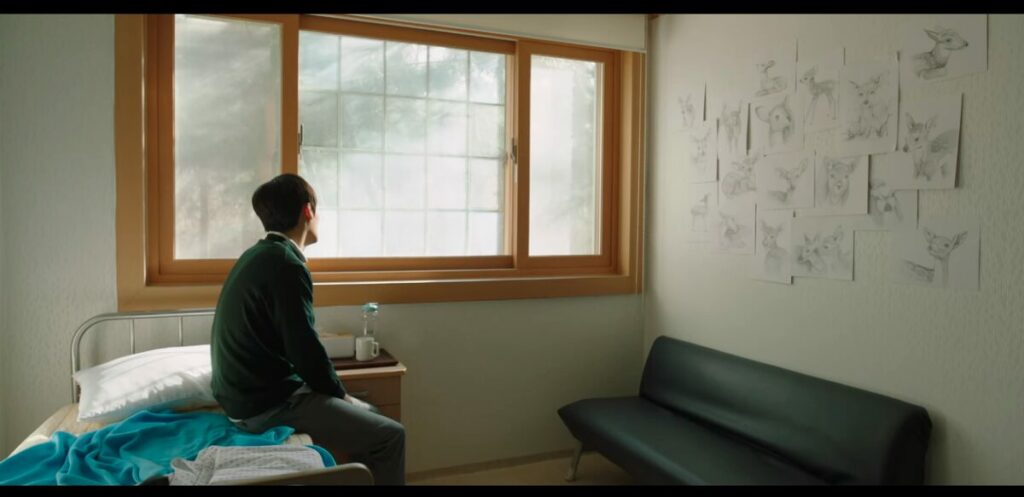
Hers was an act done out of love, done outside of a moral framework of good or evil. But the consequences of that act are not beyond evil. They ripple out like a destructive wave drowning others in their wake.
They do contrast, however, to the actions of Han Ki-hwan whose pursuit takes up the bulk of these final four episodes. Han Ki-hwan acted solely for his own self-preservation, for his future career. His actions were from beginning to end for his own benefit. Every decision, every relationship, every step he took was for his own advancement. He used and abused even those closest to him. And while the show never asks us to compare him and Kang Jin-mook, he is in many ways more sociopathic even than our resident late mass murderer. He pursues perfection so that he can say that he is perfect and for no other reason.
The literal Korean title for this drama is Monster. But who is the greater monster here? The brutal thug, Lee Chang-jin; Do Hae-won, the mother who feels that her progeny is above the law simply for being her progeny; the serial killer, Kang Jin-mook; or the future head of Korea’s police force, Han Ki-hwan? A man who ends up pointing a gun at his own son’s head to avoid the consequences of his own actions.
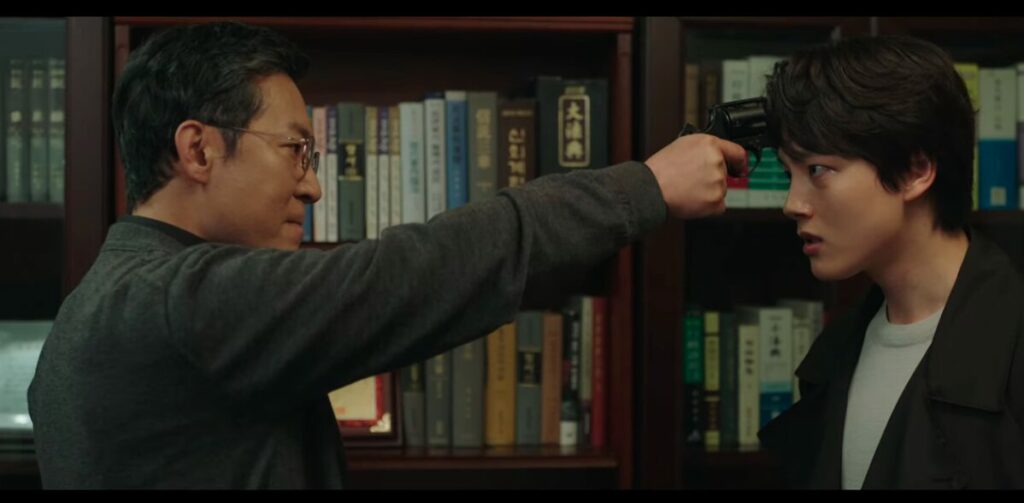
Which brings us to the second theme that Beyond Evil teased out wonderfully in its back half. It’s the theme of adulthood through honesty and responsibility.
By the time Beyond Evil comes to its climax every one of our character has made their own mistakes and is guilty in their own way. Each of them have chosen to bend or break the law: for their own advancement; the protection of others; their quest for justice; or a belief that they are above or even beyond the standard social rules. But it is not their mistakes that define them, it is their response to those mistakes.
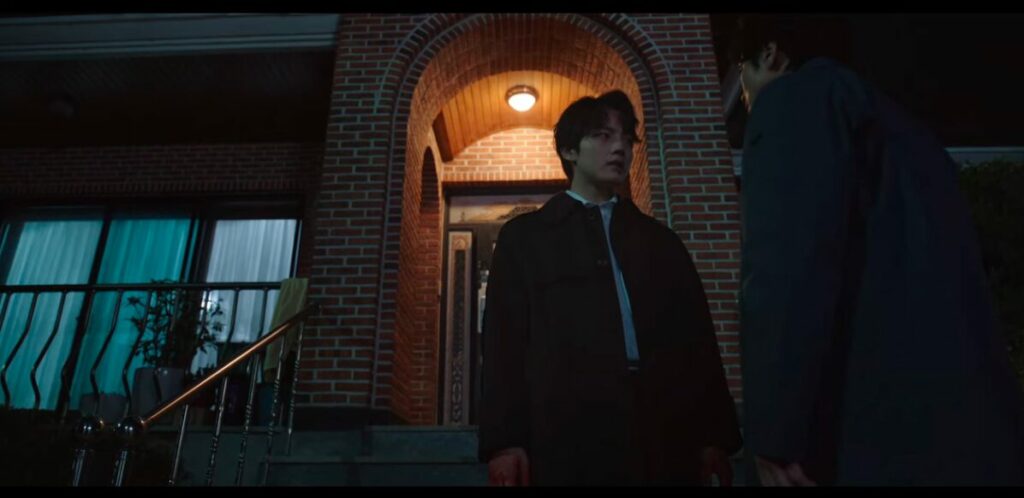
In particular, the show’s back half has two immensely powerful scenes. The first is Han Ki-hwan’s selection hearing where his son chooses to sacrifice himself to help stop his father from becoming Commissioner General. It’s the culmination of an emotional journey that spanned the drama from episode one: from entitled rich kid trying to duck responsibility for his own mistakes to humbled cop willing to go against his own father if it means that justice is done.
The second is Dong-shik’s decision to hand himself in finally for evidence tampering now that his sister’s killer has been brought to justice. Positioned deliberately right after Han Ki-hwan’s arrest, the contrast between the two men is clear: one refusing to take responsibility for his own mistakes right until the end, the other willing to hand himself over for crimes not yet unearthed because it is the right thing to do.
It’s no surprise that when confronted with a father figure who is a hypocrite – showing one face to the world and another in private – and a father figure who is willing to show the world his true self with all its flaws and repercussions, Joo-won bows to the latter in deep respect.
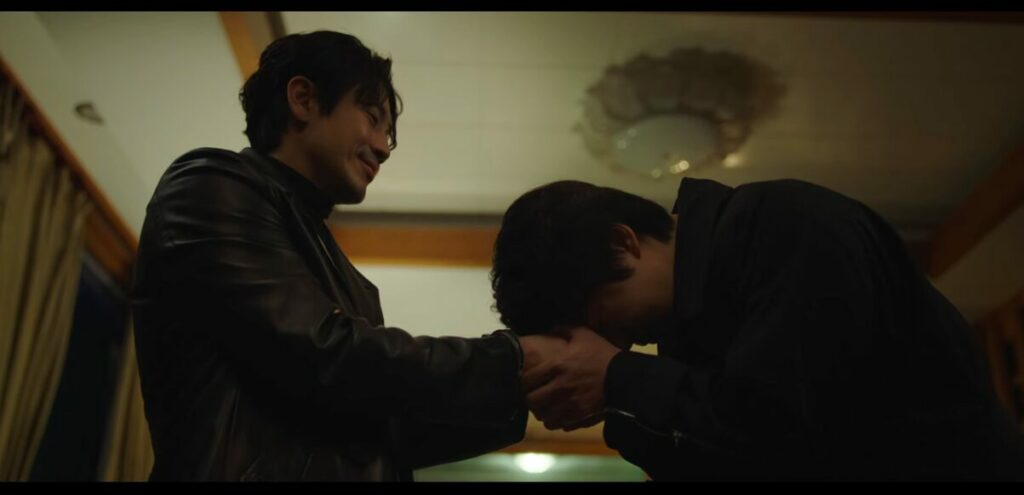
Dong-shik and Joo-won’s developing relationship through the show was at all times complex and compelling. Its complexity means it never quite attained the status of buddy-cop partnership, most especially because Joo-won was looking for a new father rather than a work partner. He spent the back half vacillating between admiration, emulation and disappointment as a son would. The complexity of this relationship was what elevated the show above more mundane crime thrillers, built as it was on exceptional characterisation and a deep understanding of who these two men were.
Nonetheless, Beyond Evil’s final four episodes are not the most compelling of the season. With four full hours of screentime to fill, it got a little too bogged down in criminal process and became even a bit too repetitive at times. The show became a bit too occupied with our two protagonists getting their man and lost some of its evocativeness and enigmatic sensibility.
However, regardless of any of the show’s back half flaws – in particular the loss of the small town gothic vibe that made it so engrossing in the beginning – it still has scenes so finely written and so mesmerisingly acted that you keep watching.
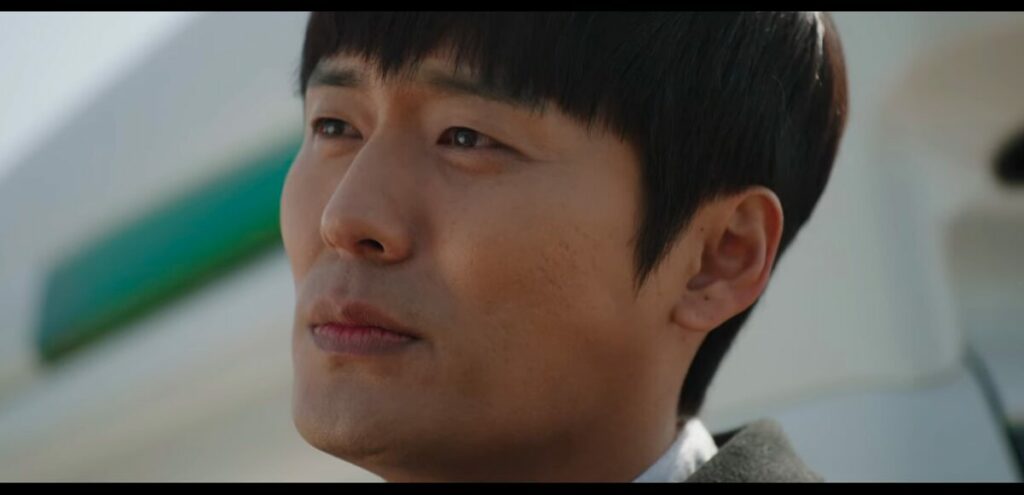
I cannot leave this show without commenting on the exceptional performances from almost everyone involved. But unfortunately for Yeo Jin-goo and Choi Dae-hoon who were extraordinary throughout, this is Shin Ha-kyun’s show. This was a tour de force of acting, a career triumph. Well deserving of the Best Actor Award at this year’s Baeksang Art Awards.
Beyond Evil won also Best Drama, a gong I believe it absolutely deserves. This is by far 2021’s best show and I’m glad I decided to weecap it, even if my schedule means there was nothing timely about it. Deep diving into this drama made me appreciate the production even more. It’s just a shame that this year’s best script and best performance is in a genre that some people will find alienating. Because what made Beyond Evil such wonderful television in the end was not its crime elements but its emotional ones. Its portrayal of deep directionless grief and the corrosiveness of emotional purgatory was gut wrenching in a way that is both tragic and yet completely ordinary.
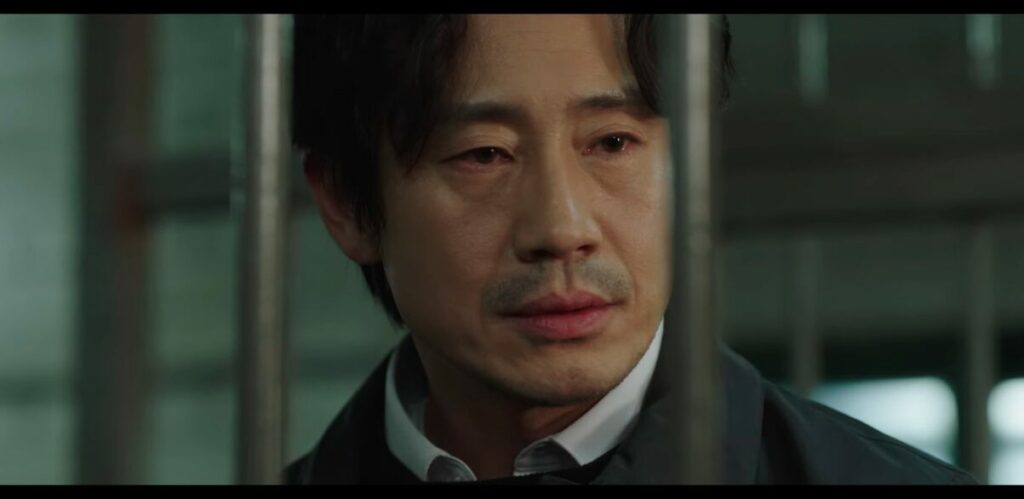
While the show never answered many of its deeper questions about the intersection between the law and justice, it did a masterful job of showing that secrets are like silent spreading cancers metastasising under the thin skin of society. Cutting them out might be violent and disruptive but it is surgery that needs to happen for the healing to begin. And this is as true for an individual as it is for the collective whole.
Nobody is above and beyond justice and nobody is above and beyond the law. This is not just a statement of morality but a statement of social functioning. Acts of love may take place beyond good and evil but their consequences do not. It may seem like it’s to our mutual benefit to bury mistakes like our kimchi pots. But in the end, what is buried must be unearthed. As uncomfortable as that makes us, as much as we wish to regress to the mean, as much as we fear leaving our purgatory in case we end up in hell. It is for our own good.
Beyond Evil is available to Australian viewers with English subtitles on Netflix
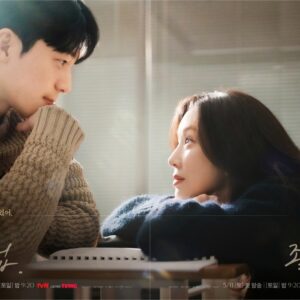

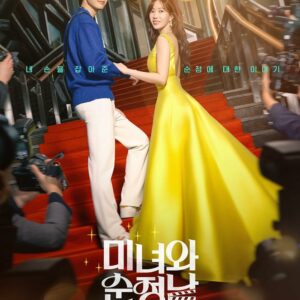
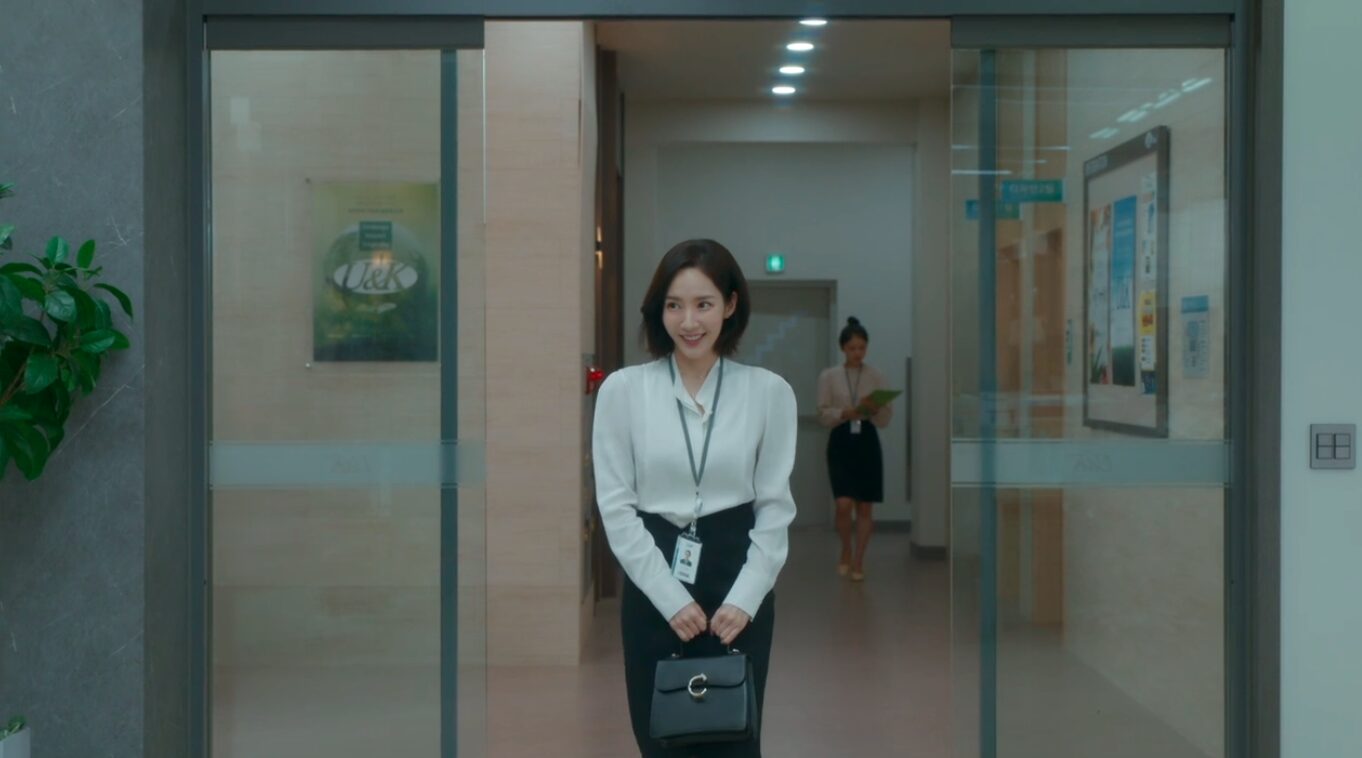
Thanks for the weecaps it was fun reading it.
This drama is really beyond good and SHK is beyond phenomenal.
Now maybe you should listen to me again and…..
Try watching The Guest 😅
Haha, sorry Waadie. I’m afraid The Guest is not for me because the lead is a priest. I’ve heard nothing but good things but I’m afraid I’m not interested in a show that has a priest as a hero.
Glad you enjoyed the reviews and thanks for sticking around when it took me so long to finish them. I agree this was a great show.
The lead isn’t a priest
The lead is a psychic cabbie
His friends are a detective and a preist.
You should ignore the fact that there’s a priest and focus on the family of misfits that come together to fight big bad evil
I forgot to say something
He’s a boy who lost his family and brother to the big bad evil so he thought by being a priest he’ll be able to fight it but that didn’t work out much and he lost his father figure to the same big bad evil then by interacting with his to be family he learned how to fight first his own demons and then the big bad evil and cope with loss and life.
I love how much you love the Guest May. Keep recruiting.
I’m doing just that , flycolours might be watching ep16 while I’m typing these words , since she said she’s going to watch it tonight.
But I want you to give it a chance too , even cloggie did and she loved it.
Anyway I won’t give up even if you didn’t watch it , once we’re all on the island I’m going to make you all watch it with me *insert evil laugh*
Other than Dongshik being a father figure to Joowon, I agree with everything in your review 🙂
Thanks so much!
oo im curious about your perspective, could you elaborate on how you see their dynamic?
Lovely!
Aww thanks Flying Tool and thanks for dropping by